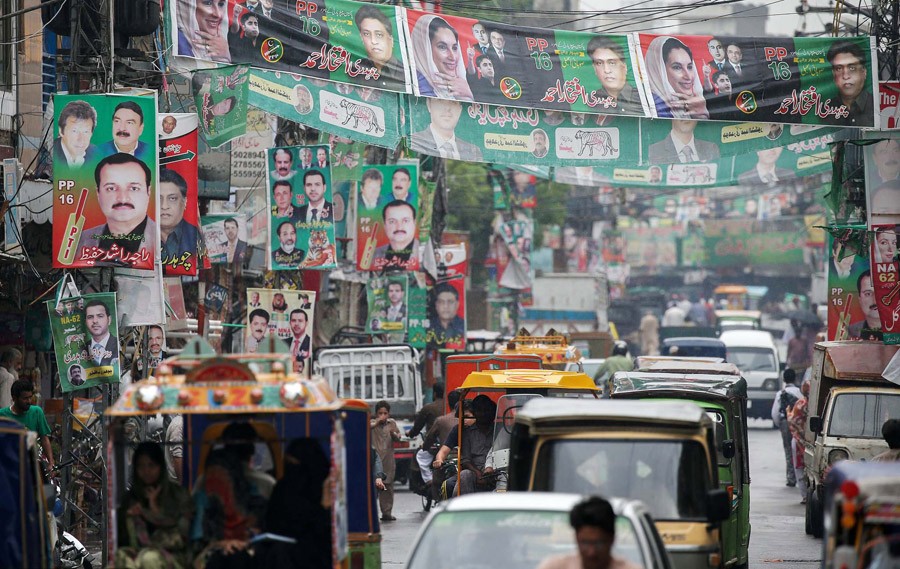

Why have political forces failed to deliver? One simple response to this question by young students could be that the prevailing political process had hardly any historical roots in the region we inhabit. But such an answer could not satisfy those youngsters.
Acquiescing to their urging, I started thinking aloud. To my contention, the political parties in Pakistan are not properly evolved. That response too seemed elusive to the youngsters. They wanted me to elaborate ‘not properly evolved’. Thus began a detailed discourse on Pakistan’s political parties and their inadequacies. These inadequacies have both horizontal and vertical dimensions. Here horizontal dimension means the relationship among politicians and the parties they are associated with.
After 1988, no political party could muster up enough electoral support from all the federating units. After the 1988 elections, People’s Party under Benazir Bhutto had representation in all four provinces. The nature of politics has changed quite drastically ever since. All the political parties were confined to specific regions -- that pattern persists even today.
Due to the political polarisation, political action has failed to cultivate a sense of camaraderie among the federating units. Class affinity has gradually been substituted with regionalism, sectarianism and ethnic loyalties. Such situation does not warrant any possibility of political consensus that our nation direly needs. That becomes all the more important when the political scenario is subjected to the orchestrations of non-political forces.
Now we come to the vertical dimension of the political configuration, which is far more problematic. The three-tier political structure either does not exist and if it does, it is flawed. The political institutions at the national, provincial and the district/local levels must function in tandem if they are to exist in an effective manner and deliver to the satisfaction of electorates.
Ironically, the politics at the national as well as at the provincial levels operate independent of the political realities at the levels of district or Union Council. The two streams of politics have a dialectical relationship that is detrimental to the political structure in general. None of the democratic regimes has allowed a proper and empowered local bodies system to exist and function. Instead their role was subsumed by the members of provincial and national assemblies, which invariably resulted in the stunted growth of the political institutions. I consider it as the major vulnerability of Pakistani politics, which allows non-political institutions to assert in realms that entirely belong to the politicians.
If analysed closely, the political parties are beset with organisational flaws. Every political party has to have three components namely ideological/conceptual, charismatic leadership with wider socio-political appeal and political manipulators. The last component -- political manipulators -- is very important to negotiate terms with other parties and the establishment. These components must have an effective coordination, which is sine qua non for the benefit of the political party.
In Pakistan’s political history, National Awami Party and People’s Party (in its earlier phase) had all these components which accorded them political success and social acceptability. The ideological/conceptual component of a political party should devote its energy and time in studying the problems of people and formulate the party’s policy to resolve those problems. It may exist in the form of think thanks and research institutions with competent people on board. Unfortunately, none of the mainstream political parties has paid any attention towards that component that can be of seminal importance. Jamaat-i-Islami has Institute of Policy Studies in Islamabad. One hopes other parties take a cue from the JI.
Keeping in view the persistent nature of Pakistan’s economic vows, all the parties must have their respective wings with competent economists who can analyse the situation and come up with their own policy prescriptions. The non-political actors have the benefit of being more aware than the political parties and their leadership about the socio-political situation obtaining in different regions of the country.
There is no scarcity of charismatic leadership in Pakistan. Imran Khan is abundantly endowed with this trait. The charisma of a leader usually acts as glue among the disparate sub-groupings within the party.
However, in the case of South Asia, charismatic leadership gives way to dynastic politics which dissipates the democratic spirit within the parties. In order to keep charismatic leadership within limits, ideological core and its empowerment is mandatory. Thus, without conceptual/academic component, mere charisma proves catastrophic because it churns out non-reason, war-mongering and gimmickry as one can testify from history.
Lastly, manipulators are equally important simply because politics is defined as an art of the possible. These party manipulators persuade the potential winners to join their party -- like Jehangir Tareen for the PTI and Manzoor Wattoo and Nasrullah Darehak in 1990s for Muslim League. This breed of politicians is not in a short supply either. The real reasons behind our political woes are absence of ideology from our politics and lack of coordination among all the ranks I have mentioned above.